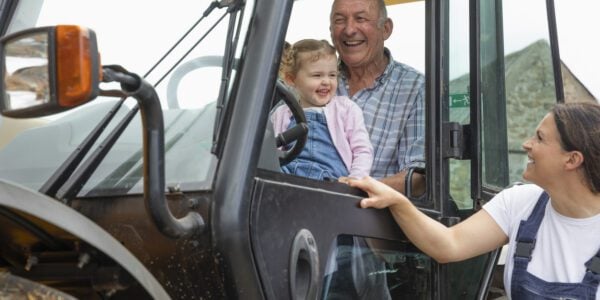-
Professor Nicholas EvansUniversity of Worcester
-
Professor Derek KyteUniversity of Worcester
-
Dale TurnerUniversity of Worcester
-
Dr Peter UnwinUniversity of Worcester
-
Dr Victoria JonesUniversity of Worcester
Project overview
This project will investigate the prevalence and impact of arthritis among farmers and farm workers in the UK.
Why this project is important
There is little recent UK research about arthritis in farming communities. Research in the USA has found that arthritis is ever-present in a range of farming contexts. The prevalence of the condition was found to increase markedly over the age of 45, with hip and knee problems being particularly associated with the forceful nature of farm work.
The demanding nature of farming, coupled with socio-economic pressures and cultural stereotypes, often leads to neglect of personal health. Older farmers are particularly susceptible to arthritis and often continue working despite the pain. Additionally, farmers are known ‘under-users’ of NHS services, lying beyond the general reach of primary care organisational structures by virtue of their isolated rural locations.
What it will involve
The research team aim to bridge the gap in knowledge and policy, shifting focus from medicalised intervention to prevention by:
- Gaining an understanding of modern farming working practices and the associated incidence of arthritis to provide insights into the nature of the condition amongst English farmers.
- Capturing the lived experience of arthritis in farming communities in Herefordshire and Worcestershire.
- Better understanding the lifestyle and behavioural factors at play, developing a range of practical solutions to encourage both prevention and living well with arthritis.
The project will utilise a multidisciplinary conceptual framework to explore cultural, occupational, and structural factors influencing arthritis in farming communities. The research will begin with a review of UK and international evidence. Farmers will be engaged through agricultural events and farm visits, aiming to observe working practices and lifestyle adaptations and discuss the most practical interventions from existing occupational therapy. Health professionals will audit and assess adaptations, which will be compared with American-based factsheets and so may result in new UK versions. A particular aim is to support the delivery of new, alternative guidance and interventions for farmers, drawing upon their own experiences, knowledge and assessments of efficacy.
How it will make a difference
Findings will be directly shared with key stakeholders, including members of the farming community, health professionals, and policy makers. Outputs such as practice guides, videos, and articles will be disseminated to promote awareness and change in practices, aiming to improve health outcomes and quality of life for farmers.





























